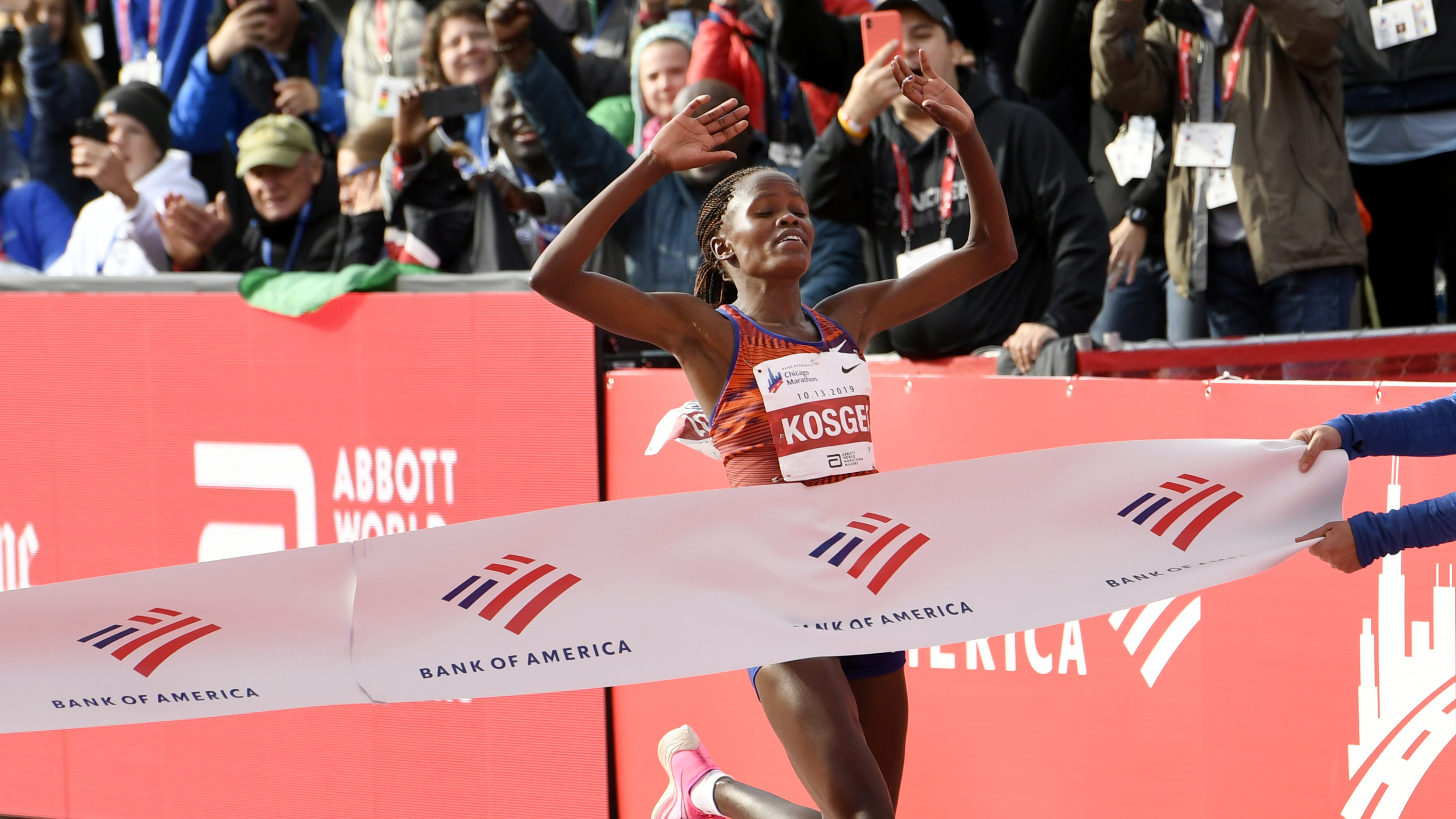02:55

A storm has been brewing in Athletics. Stunning recent runs by Kenyans Eliud Kipchoge, who became the first man to run a marathon in under two hours and Brigid Kosgei, who smashed the long-standing women world record, have given the sport a prominence it rarely experiences.
But was a controversial line of Nike running shoes central to these feats? Both Kipchoge and Kosgei were wearing the Nike ZoomX Vaporfly trainers for their record breaking runs.
Critics say these shoes give wearers an unfair advantage and are a form of "technological doping" against the spirit of Athletics.
Yannis Pitsiladis, a professor of Sports and Exercise Science, says that in terms of innovation, there's nothing wrong with the shoes, but he believes the model is "against the current rules of the sport.”
He goes on to say that as a consequence, there's going "to be a race between the manufacturers, rather than a race between the athletes.”

Kipchoge crossing the finish line in Vienna last month, becoming the first man to run a marathon in under two hours (Source: AP Photo/Ronald Zak)
Kipchoge crossing the finish line in Vienna last month, becoming the first man to run a marathon in under two hours (Source: AP Photo/Ronald Zak)
Paula Radcliff, whose marathon world record was broken by Kosgei, believes these trainers should be made available to every athlete, to make the race as fair as possible.
"They shock absorb much better, so they protect your joints and your muscles against the fatigue of pounding. Part of me thinks it's a bit the evolution of sports and of sports performance," she says.

Kosgei (center), talks with the media after breaking the women world record while former record holder Radcliffe (left) looks on in Chicago in October (Source: AP Photo/Paul Beaty)
Kosgei (center), talks with the media after breaking the women world record while former record holder Radcliffe (left) looks on in Chicago in October (Source: AP Photo/Paul Beaty)
This is not the first time that technological advances in sports equipment has made waves. The introduction of graphite tennis rackets has led to a revolution and the old wooden rackets soon became obsolete.
But it's the first time we've seen a brand come along with a completely new technology and move the dial so far forward in such a short space of time, says Kerry McCarthy, Commissioning Editor, Runner's World UK.
"That's what coaches and other non-Nike athletes are getting upset about. You put the shoes on and you are immediately aware that it's different and you are aware of it the whole time you are running," he says.
McCarthy believes Nike's trainers are not breaking any rules at the moment so until new legislation is in place, "they should carry on and it's kind of up to other companies to keep up."
So what makes these trainers so efficient? The manufacturer quotes an external study, which says the prototype shoes lowered the energetic cost of running by four percent on average.
The International Association of Athletics Federations (IAAF)'s technical committee have been investigating the legality of these shoes for almost three years.
With the 2020 Summer Olympics in Tokyo fast approaching, a decision is expected imminently.